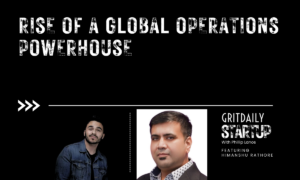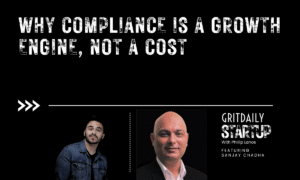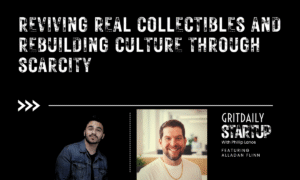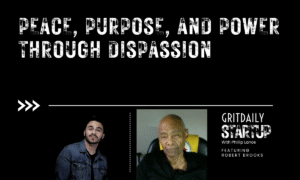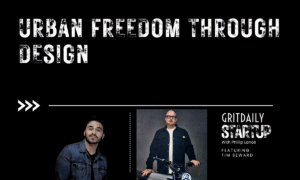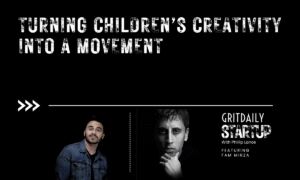At the highest levels of business, success often carries a silent tax that includes sleepless nights, loneliness, and a constant chase for meaning after milestones are met. Few understand that reality better than Drs. Denise and Louis Joseph, the founders of the Open Sea Institute (OSI), whose work focuses on the mental resilience and psychological optimization of high performers. Their mission isn’t to slow the pace of ambition, but to bring peace, joy, and balance to those living at its outer edge.
From Medicine to Mental Mastery
Both physicians by training, Denise and Louis left prestigious institutions — Mayo Clinic, the Smithsonian — to build a movement that bridges psychology, performance, and purpose. Their motivation came from watching the health system transform into an industry measured in numbers, not relationships. Medicine had become corporate, fragmented, and transactional. The Josephs envisioned something more humane, a model that could address both the biology and psychology of leadership.
Rather than treating illness, OSI seeks to enhance wellness from the top down. The couple realized that when leaders operate from a place of clarity and balance, that stability ripples through their organizations and industries. By serving those at the highest levels — CEOs, financiers, founders, and policymakers — they believe the positive effects cascade to teams, families, and even markets.
The Psychology of the Peak
The Josephs’ work revolves around a fundamental insight: high performers aren’t driven by comfort, but by creation. In the worlds of finance and entrepreneurship, achievement doesn’t bring rest; it breeds a hunger for the next climb. Yet even for those thriving on that edge, pressure accumulates. The human need for connection and reflection remains.
Through OSI, the Josephs design individualized programs that integrate neuroscience, psychology, and executive strategy. Each protocol is crafted around the personality of the leader and the identity of the organization. It’s not about flattening differences into a universal model, but about amplifying unique strengths, helping people understand their inner architecture as much as their business structures.
Healing the Hidden Layers
In their practice, the Josephs see not only the executives but their families, the partners and children living in the gravitational pull of ambition. A high-performing parent can cast a long shadow, leaving others unsure of where they fit or how to measure their own worth. Addressing these family dynamics has become a cornerstone of OSI’s holistic approach.
Their work also explores the psychological transition that follows major exits, the emotional aftermath of selling a company or completing a monumental goal. These moments, they note, resemble life transitions like marriage, divorce, or loss. Entrepreneurs often face a form of identity grief, having poured their entire sense of self into something they must now let go.
Building Resilience, Not Rituals
When asked what daily practices anyone could adopt, even from a co-working desk, the Josephs point to meditation. They often recommend transcendental or mindfulness-based approaches for their ability to rewire neural pathways without requiring perfection. But more broadly, they emphasize the fundamentals: rest, movement, sunlight, and self-awareness.
Their philosophy is less about routine and more about resilience. The goal is not to suppress stress but to train the mind to weather it gracefully. As Louis explains, a healthy practitioner must first be a healthy instrument, embodying the stability they seek to impart.
The Human Edge in an Age of AI
The Josephs’ optimism extends to technology, even as artificial intelligence begins reshaping the boundaries of human interaction. While Louis warns of the emotional dangers of replacing relationships with algorithms, both see AI as a tool, not a threat. Denise notes that as society evolves — and neurodiversity, remote work, and digital intimacy expand — AI may fill certain gaps but can never replicate human nuance.
Their caution is grounded in faith in human capacity. “We created AI,” Louis reminds, and the human brain remains the most efficient system on the planet. To the Josephs, progress without empathy is hollow; it’s the human mind that gives meaning to the machine.
Partnership as Practice
Beyond their clinical and advisory work, Denise and Louis model what they teach. Married since their university years, they have built their personal and professional lives in parallel. Their partnership thrives not on division of labor but on shared curiosity. Where one leads, the other joins. Their alignment, both intellectual and emotional, underpins the empathy and balance they bring to clients navigating high-stakes worlds.
A Philosophy of Growth
If OSI has a single mantra, it’s that growth never ends. Wellness is not a destination but a devotion, a lifelong transformation that continues long after crisis has passed. Their goal is not to make high performers less ambitious, but to make them more whole.
For those seeking to sustain their edge without losing their humanity, the Josephs offer a simple message: take yourself seriously. Every concern, every imbalance, every fatigue signal deserves attention. Because even at the top, self-neglect is the one luxury no one can afford.
Want more Grit Daily Startup Show? Take a look at past articles, head over to YouTube, or listen on Apple Podcasts or Spotify.


